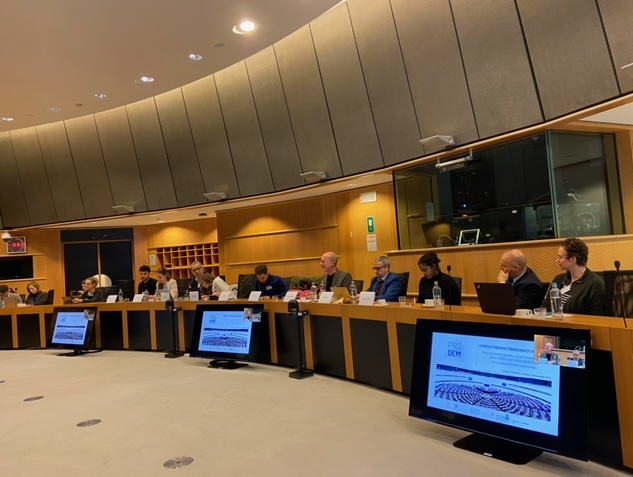ProDem researchers Matthias Hoffmann and Christina Neumayer have published a new article titled “Movement Parties’ Interactions on Social Media: Positioning and Trajectories in the Polity Arena” in the Journal of Information, Technology & Politics. In it, they report a longitudinal analysis (2010–2021) based on data from eighteen parties’ official social media accounts in six European countries. As the authors explain, “conceptually bridging cycles of contention, social movement lifecycles, and party lifespans, this research identifies regularities in referencing patterns between traditional party families; and by adding a temporal layer, outlines three trajectories of movement parties in the polity arena. The results contribute to conceptualizing movement parties as hybrid organizations and suggest a common logic of movement in positioning in the polity arena as drivers of party-to-party interactions moderated by country-specific contextual factors”.
The article can be accessed here: https://www.tandfonline.com/doi/full/10.1080/19331681.2023.2239817.
